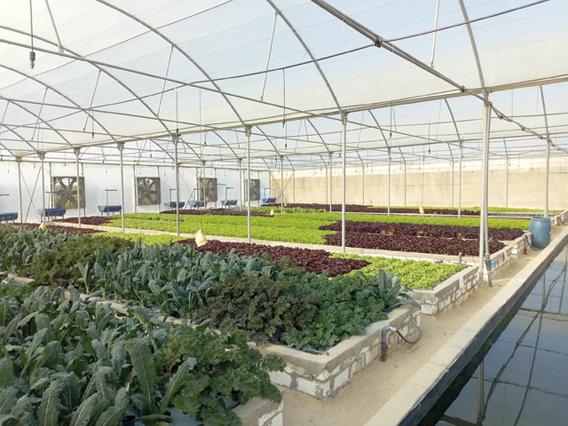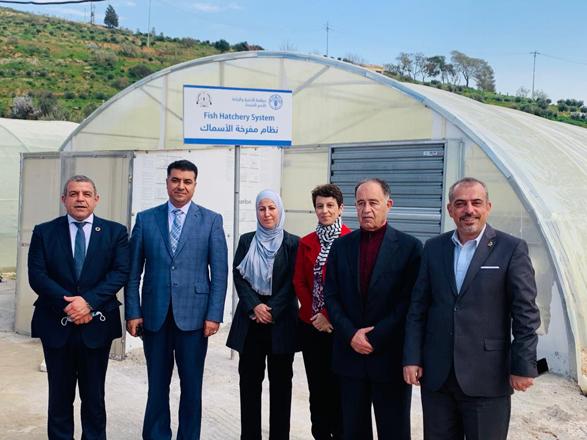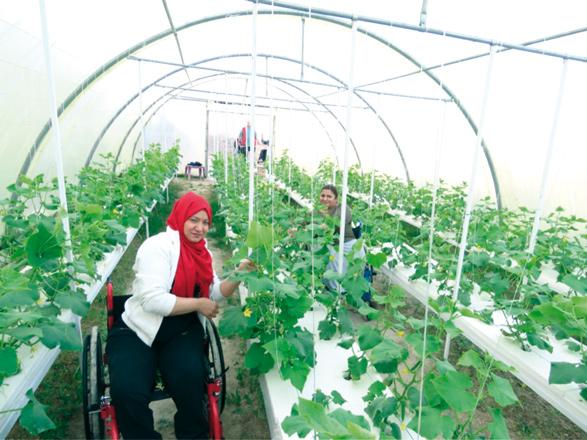You are here
Future of agriculture lies in hands of agri-tech, say experts
By Rayya Al Muheisen - Mar 26,2022 - Last updated at Mar 26,2022

A view of a farm using hydroponics system (Photo courtesy of Mutaz Rabei)
AMMAN — The future of agriculture is in hydroponics and aquaponics, and utilising agri-tech will help local agriculture thrive, say experts.
“Replacing traditional agricultural methods with hydroponics can save up to 70 per cent of water resources,” Agricultural Engineer and hydroponics expert Mutaz Rabei told The Jordan Times.
Rabei added that hydroponic farming is a sustainable agricultural method because there is no water lost to the soil or to evaporation, and the water in the system is recycled over and over.
Head of the Farmers Union Adnan Khaddam said that hydroponics is more profitable for farmers in the long run, affirming that it supports environment sustainability and reduces soil degradation.
However, Khaddam noted that, “it requires a huge capital to start a hydroponic farm”, adding that small- and medium-scale farmers may not be able to afford the switch to hydroponics, which requires new infrastructure, such as pipes and plastic houses, and new technologies, such as water thermometers and sensors.
But he said that while there are high initial costs, the return from hydroponic farms is higher than traditional farms due to the quantities that can be harvested.
“Vertical hydroponic farms can grow to produce three times more than traditional farms,” Rabei stated, but also noted the high start-up costs that can reach around JD7,000 for transforming a 1,000 metre traditional farm.
Rabei added that there are multiple advantages for switching to hydroponics and aquaponics for farmers, including reducing labour costs, energy consumption and water use.
Rabei also highlighted the advantages of hydroponics, explaining that it can be carried out in an enclosed area or even vertically, which greatly increases land use efficiency and increases local food supplies by producing more crops.
In aquaponics, instead of adding fertilisers to the water to provide nutrients (hydroponics practice), fish are grown simultaneously in the aquatic environment to create a symbiotic relationship that results in an “incredibly efficient system”, said Rabei.
“In aquaponics, the fish provide a natural source of organic nutrients through their waste,” Rabei stated.
In hydroponics minerals are dissolved in the water to provide nutrients directly to the crops, Rabei added, saying “it is also a highly controlled farming method”.
He stated that in both practices, crops are grown in an enclosed and clean environment free from pests and so pesticides are not necessary. Fertilisers are not required, as minerals needed by the plants are artificially controlled, avoiding the risk of pollution from chemical fertilisers and bacterial pollution from animal manure.
Both Khaddam and Rabei urged the government to support farmers to switch to hydroponics through funds or grants.
Related Articles
AMMAN — The Representative of the Food and Agriculture Organisation of the United Nations (FAO) in Jordan Nabil Assaf, Agriculture Minister
AMMAN — The Food and Agriculture Organisation of the United Nations (FAO) and the Ministry of Agriculture (MoA) on Monday launched a pioneer
The US embassy on Saturday showcased locally grown hydroponic and organic vegetables during a reception with Jordanian producers and government officials held in honour of visiting US Secretary of Agriculture Thomas Vilsack.


















